1. Howard Dean’s Infamous “Yaaaah!” Scream (2004)
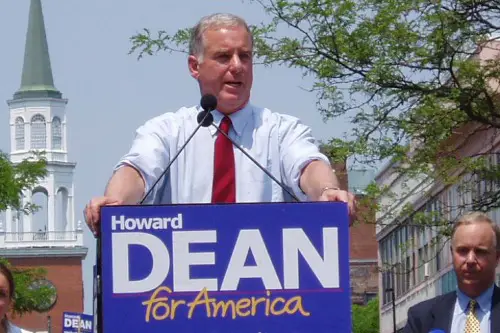
In the aftermath of a disappointing third-place finish in the Iowa caucuses, then-presidential candidate Howard Dean tried to rally his supporters with a fiery speech. But it wasn’t the words that made headlines—it was the guttural, high-pitched “Yaaaah!” at the end that instantly became political meme fodder, according to Calvin Cutler of WCAX. What was meant to show energy and optimism came across as unhinged, and media replayed it on an endless loop. That one scream is widely considered to have tanked his campaign.
What’s wild is that in the room, the crowd was so loud, people didn’t even hear the scream as unusual—it only stood out on the broadcast mic. But it didn’t matter. The “Dean Scream” took on a life of its own, becoming one of the first political viral moments of the internet era. It’s now taught in political science classes as a lesson in optics.
2. Rick Perry Forgets the Third Government Agency (2011)
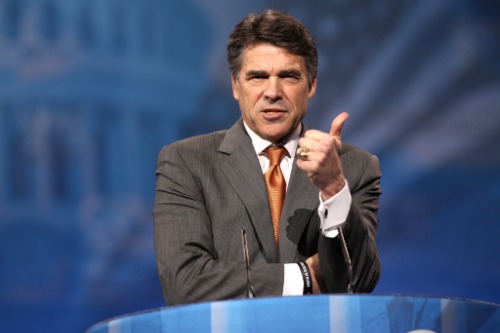
During a Republican primary debate, Texas Governor Rick Perry confidently announced he would eliminate three federal agencies. He listed Commerce, then Education… and then completely blanked on the third, Ewen MacAskill of The Guardian reports. After an excruciating 45 seconds of stumbling, he finally gave up with a sheepish, “Oops.” The moment was so awkward it felt like watching someone forget their own phone number—on live TV.
The kicker? The third agency he meant to name was the Department of Energy—the one he would later be appointed to lead under the Trump administration. That twist alone adds a whole new level of irony to the flub. The clip became so iconic, Perry later joked about it himself, but it stuck to him like glue.
3. Marco Rubio’s Thirsty Water Grab (2013)

Responding to President Obama’s State of the Union, Senator Marco Rubio gave the GOP’s rebuttal live on national TV. Just a few minutes in, he began to sweat—and then awkwardly reached off-camera to grab a tiny water bottle. What should have been a serious policy speech instantly became a viral moment, thanks to the weirdly desperate sip, according to Lucy Madison of CBS News. The timing, the nervous energy, and the tiny water bottle made the whole thing look amateurish.
Rubio tried to laugh it off, even joking about it on Twitter afterward. But for months, he couldn’t escape questions about hydration during interviews. Late-night hosts had a field day, and the moment became symbolic of how hard it is to look natural under pressure. Sometimes, it’s not what you say—it’s how you sip.
4. Mike Dukakis Rides in a Tank (1988)
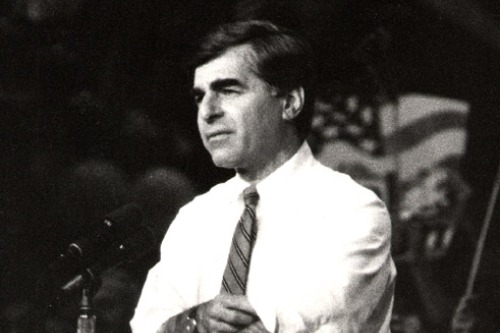
In an attempt to look strong on defense, Democratic presidential candidate Michael Dukakis climbed into a military tank for a photo op, Josh King of Politico explains. Wearing an oversized helmet and an awkward grin, he looked less like a commander-in-chief and more like a kid on a carnival ride. The image backfired spectacularly, becoming instant fodder for ridicule. Republicans turned it into a devastating ad that painted Dukakis as weak on national security.
The whole stunt was meant to counter perceptions that he lacked toughness. But instead of boosting his image, it reinforced the very narrative he was trying to fight. The photo became one of the most infamous visuals in modern campaign history. It’s still used today as the ultimate example of a political photo op gone wrong.
5. Sarah Palin’s Russia Comments That Inspired a Legendary Parody (2008)
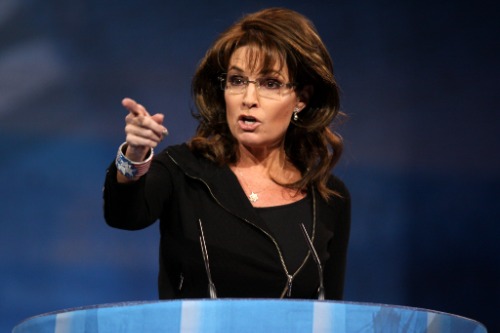
During a 2008 interview with ABC’s Charlie Gibson, vice presidential candidate Sarah Palin was asked about her foreign policy credentials. Her response? She pointed to Alaska’s geographical proximity to Russia, saying, “They’re our next-door neighbors, and you can actually see Russia from land here in Alaska.” It was meant to show awareness of international affairs, but it landed more like a geography trivia flex than a serious qualification.
The comment was so awkward and vague that it became a punchline before the week was out. Enter Tina Fey on Saturday Night Live, who delivered the now-famous spoof: “I can see Russia from my house!”—a line Palin never actually said, but one that stuck to her like glue. The parody worked so well because it didn’t feel that far off from reality. When a comedy sketch becomes more memorable than your actual platform, it’s probably not a great sign for your campaign.
6. Bill Clinton’s “It Depends on What the Meaning of the Word ‘Is’ Is” (1998)

While under oath during the Monica Lewinsky investigation, President Bill Clinton was asked if he had ever had a sexual relationship with her. His response? “It depends on what the meaning of the word ‘is’ is.” The semantic hair-splitting stunned the public and gave late-night hosts endless material.
The legalistic answer was technically defensible, but politically disastrous. It made Clinton look slippery and insincere at a time when he was already in hot water. The moment came to symbolize the obfuscation and denial that plagued his presidency during the scandal. If your defense hinges on redefining basic verbs, it’s probably not going well.
7. Donald Trump’s Covfefe Tweet (2017)
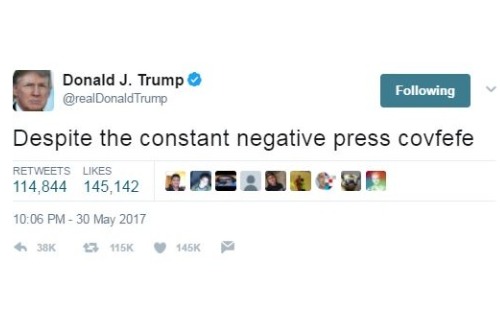
In one of the most bizarre Twitter moments in political history, President Donald Trump tweeted: “Despite the constant negative press covfefe.” And… that was it. No follow-up. No correction. Just that mysterious, typo-ridden message hanging in cyberspace.
The internet exploded with jokes and theories. Was it a typo? A code? A sign of a hacked account? The White House added to the weirdness by cryptically saying “the president and a small group of people know exactly what he meant.” To this day, “covfefe” is a symbol of how off-the-rails political communication can get in the social media age.
8. Joe Biden’s “You Ain’t Black” Comment (2020)

During an interview with radio host Charlamagne tha God, then-candidate Joe Biden said, “If you have a problem figuring out whether you’re for me or Trump, then you ain’t Black.” The statement immediately drew backlash for being tone-deaf and presumptive. Critics from both sides called it offensive and patronizing, and Biden quickly walked it back. He later apologized, saying he “shouldn’t have been so cavalier.”
The damage control came fast, but the internet had already latched on. The phrase became a rallying cry for Biden’s opponents and a point of discomfort for some supporters. It highlighted the tightrope politicians walk when trying to appeal to diverse voter bases. One clumsy comment can undo months of coalition-building.
9. George W. Bush’s “Mission Accomplished” Banner (2003)
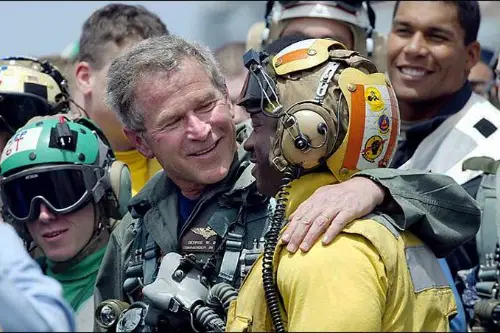
Just weeks after the invasion of Iraq began, President George W. Bush landed on an aircraft carrier and declared major combat operations over. Behind him? A huge “Mission Accomplished” banner. But the war was far from over, and that backdrop became a hauntingly premature symbol of misplaced confidence.
As casualties mounted and the conflict dragged on, the photo op turned into a political albatross. Critics cited it as a textbook case of triumphalism gone wrong. The Bush administration later claimed the banner referred to the ship’s mission, not the war. But by then, it was far too late—the optics had already solidified.
10. Hillary Clinton’s “Pokémon Go to the Polls” Joke (2016)

In an effort to connect with younger voters, Hillary Clinton referenced the viral mobile game Pokémon Go during a campaign rally. “I’m trying to figure out how we get them to have Pokémon Go to the polls,” she said, smiling awkwardly. The silence that followed was deafening. It was a moment so forced, even her supporters cringed.
The internet quickly turned it into a meme—just not the kind you want during an election. Instead of energizing millennials, it reinforced the idea that Clinton was out of touch. It’s a reminder that not every pop culture reference lands, especially when it sounds like your aunt trying to be cool. Timing and tone are everything.
11. Ted Kennedy’s Garbled Speech Announcing His Candidacy (1979)
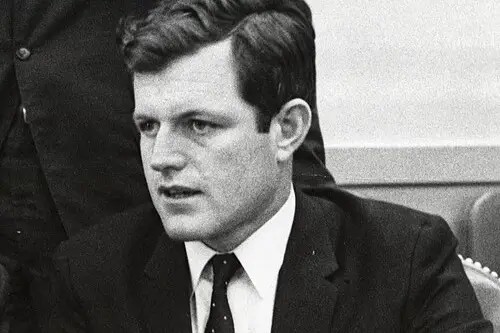
When Senator Ted Kennedy finally announced his run for the presidency in 1979, expectations were sky-high. But during an interview with CBS’s Roger Mudd, he was asked a simple question: “Why do you want to be president?” Kennedy stumbled, paused, and gave a rambling, vague answer that shocked viewers. He spoke about “restoring a sense of purpose” but couldn’t articulate a clear reason.
The answer was so confusing that it raised immediate doubts about his candidacy. For someone with his pedigree and preparation, the lack of clarity was hard to ignore. It became a defining moment of his failed campaign—a case study in how not to launch a national run. Even decades later, political consultants still reference it as a cautionary tale.
12. Dan Quayle Misspells “Potato” (1992)
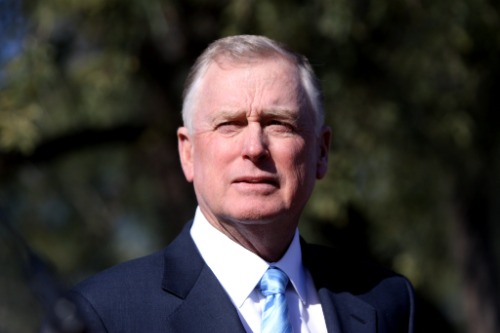
During a school visit, Vice President Dan Quayle was overseeing a spelling bee with elementary students. When a student correctly spelled “potato,” Quayle told him to add an “e” at the end. Yes, really. The clip shows the boy hesitating while Quayle insists—only to later realize, painfully, that he was the one who was wrong.
The moment became an instant punchline and plagued the rest of Quayle’s career. Late-night shows ran with it for months, and “potatoe” became shorthand for political cluelessness. It wasn’t just a spelling error—it was a public confidence-shaker in his intelligence. Small mistake, massive ripple effect.
13. Hillary Clinton’s “Basket of Deplorables” Comment (2016)
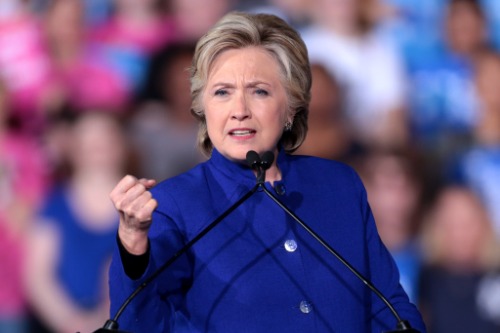
At a fundraiser in New York, Hillary Clinton described half of Donald Trump’s supporters as belonging in a “basket of deplorables.” She went on to list racism, sexism, and homophobia among the traits in that metaphorical basket. Even if her intention was to call out bigotry, the phrasing instantly blew up. It sounded dismissive and divisive—and her opponents pounced.
Trump supporters rallied around the term, turning “deplorable” into a badge of honor. Clinton later said she regretted being “grossly generalistic,” but the damage was done. The comment gave her critics exactly the ammo they needed to paint her as elitist and out of touch. Once again, a single phrase turned into a political branding disaster.
14. John Kerry’s “I Was For It Before I Was Against It” Line (2004)

During the 2004 presidential race, Democratic nominee John Kerry tried to explain a nuanced vote on Iraq war funding. But what voters heard was this clunker: “I actually did vote for the $87 billion before I voted against it.” Yikes. The quote immediately became symbolic of flip-flopping and indecision.
The Bush campaign jumped all over it, using the line in attack ads to devastating effect. Kerry’s defenders said it was a case of oversimplified media spin, but the phrase stuck. It painted him as inconsistent and eroded trust with swing voters. In a tight race, moments like this can be fatal.
15. Mitt Romney’s “Binders Full of Women” (2012)
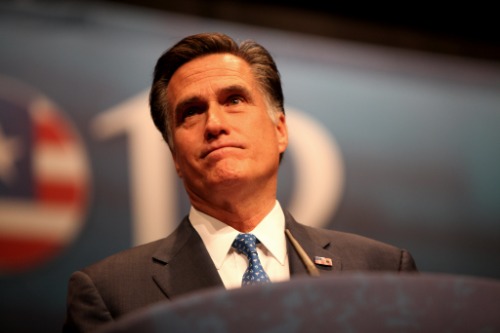
During a 2012 presidential debate, Mitt Romney was asked about gender equity in hiring. He responded by saying he had received “binders full of women” when looking for qualified candidates as governor of Massachusetts. The phrasing was awkward, robotic, and instantly mocked. Twitter and Tumblr turned it into a viral meme within minutes.
While the intent—promoting female hiring—was commendable, the delivery couldn’t have been more tone-deaf. Critics argued it made women sound like paperwork rather than people. It was one of those moments that derails the message entirely because of how it’s packaged. In modern politics, weird phrasing can be just as damaging as bad policy.


